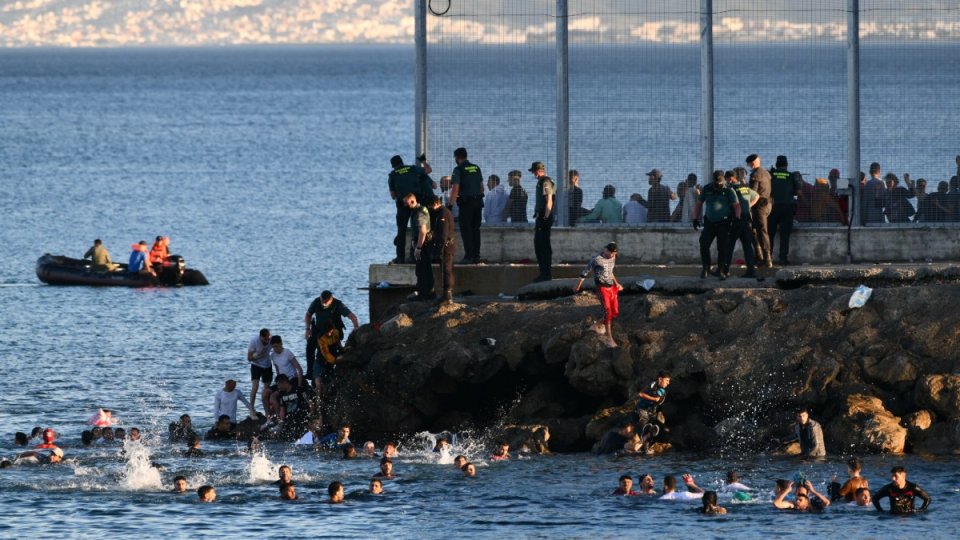by Juan A. Soto
In 2006, Spain confronted one of the most visible migration challenges in its modern history: the arrival of over 31,000 African migrants on small fishing boats known as cayucos to the Canary Islands. The so-called “cayucos crisis”[1] pushed Spain to the forefront of European migration management. Rather than react with panic or isolation, Spain responded with a balanced mix of firmness and cooperation, showing leadership on the international stage.
Spain launched diplomatic missions to West African countries, including Senegal and Mauritania, combining border control with development cooperation. Frontex operations were mobilised, and bilateral agreements were signed to strengthen returns and promote economic alternatives in origin countries. These efforts helped to stabilise arrivals and became a model for migration diplomacy.
Nearly two decades later, Spain faces another wave of pressure. In 2023, more than 56,000 migrants arrived in Spain by sea, the highest number since 2018. The Canary Islands alone saw an increase of over 140% in arrivals compared to 2022. In 2024, the numbers continued to rise, with more than 61,000 arrivals registered[2]. Yet today, as migratory pressure goes up[3], the response feels fragmented and reactive. Despite Spain’s proven capacity, its institutional approach remains compartmentalised, with ministries and regions operating in silos. What is lacking is not resources or intention, but a strategic vision—a true state policy that transcends political cycles.
To move forward, Spain must see migration not just as a challenge to be managed, but as a field of opportunities to be shaped. There are clear sectoral parallels and synergies to be explored with African partners: energy, agriculture, and fishing, to name a few. In these sectors, Spain can lead not only as a regulator but also as an innovator. The private sector must be part of the solution. So far, public-private collaboration in migration strategy has been limited. Yet investments, vocational training, circular migration schemes, and development partnerships depend heavily on business engagement.
Italy offers a compelling case for comparison. Its “Mattei Plan” for Africa[4], launched in 2024, is a comprehensive and coordinated initiative that integrates energy policy, development aid, security cooperation, and migration management under a unified strategic framework. It positions Italy as a long-term partner of African states, aligning national interests with regional stability. Spain would do well to study and adapt such an approach to its own context.
The problem of migratory pressure cannot be resolved by numbers alone. It requires forward-looking strategy—one that is proactive rather than reactive. Spain has credibility and influence in many African countries, built over decades of cooperation. But to capitalise on these assets, it must move from a piecemeal approach to a whole-of-government, whole-of-society model.
This point is further illustrated by a recent joint report from the European Migration Network (EMN) and the OECD, titled Designing Migration Strategies[5], which analyses how different countries approach migration policy. The study, which involved 28 participating countries including Spain, found that 25 of them have some form of migration strategy—either general, covering all aspects of migration, or specific, focusing on particular areas. Spain falls into the latter category, lacking a comprehensive, overarching migration strategy.
Implementation methods vary: Some countries pair strategies with annual action plans, while others rely on project funding, legislative processes, or cooperation with civil society. One common challenge identified is the lack of reliable information and poor needs assessments of affected groups, compounded by the volatile context in which these policies operate. Conversely, best practices include strong inter-ministerial coordination and inclusive consultation processes. For implementation, the creation of consultative bodies and new coordinating institutions has been cited as an effective approach.
In Spain’s case, the absence of a unified national strategy means that migration policy is primarily driven by legislation, notably Law 4/2000 on the rights and freedoms of foreigners and Royal Decree 220/2022 on the asylum reception system. Additionally, Spain has introduced a planning document that addresses related issues: the Strategic Framework for Citizenship and Inclusion, against Racism and Xenophobia (2023–2027). Yet these measures remain reactive, rushed and fragmented.
A coordinated national strategy that brings together foreign policy, trade, labour, interior or security, and education—with input from private actors and local governments—is urgently needed. Spain has shown leadership before. Now is the time to do it again: to turn constructive criticism into constructive strategy, and to lead not only by managing crises, but by anticipating and shaping the future.
However, for Spain to assume such a leadership role, it must first put its own house in order. Ongoing corruption scandals, divisions within the executive branch, and persistent fault lines between ministries severely undermine the country’s credibility and effectiveness abroad. Leadership begins at home. A credible and respected foreign policy cannot be government-run, party-run, or president-run—it must be a state-led policy that secures Spain’s national interests in the medium and long term. Only with such a foundation can Spain project influence and stability, and lead with purpose on the European stage.
[1] Valle-Galvez, A. & Acosta Sánchez, M. (2006). La crisis de los cayucos: la agencia europea de fronteras FRONTEX y el control marítimo de la inmigración clandestina. Tiempo de Paz 83, pp. 19-30.
[2] Ministry of the Interior Statistics (2024). Government of Spain. Available at: https://www.interior.gob.es/opencms/export/sites/default/.galleries/galeria-de-prensa/documentos-y-multimedia/balances-e-informes/2024/24_informe_quincenal_acumulado_01-01_al_31-12-2024.pdf
[3] El Español (14 May 2025). Brussels recommends Spain to ask for more EU funding and the assistance of Frontex to protect the Canary Islands from the migratory crisis. Available at: https://www.elespanol.com/espana/politica/20250514/bruselas-insta-espana-pedir-fondos-asistencia-frontex-proteger-canarias-crisismigratoria/1003743754849_0.html
[4] Fattibene, D. & Manservisi, S. (2024). The Mattei Plan for Africa: A Turning Point for Italy’s Development Cooperation Policy. Istituto Affari Internazionali. Available at: https://www.iai.it/en/pubblicazioni/c05/mattei-plan-africa-turning-point-italys-development-cooperation-policy
[5] OECD (March 2025). Designing Migration Strategies. European Migration Network. Available at: https://home-affairs.ec.europa.eu/system/files/2025-03/2024_EMN-OECD_inform_designing_migration_strategies.pdf
The full text can be downloaded here
© 2025 INIR. All rights reserved.
The article reflects the author’s personal views.
INIR does not take institutional positions on public policy issues; the views represented herein are those of the author(s) and do not necessarily reflect the views of INIR, its staff, or its trustees.



